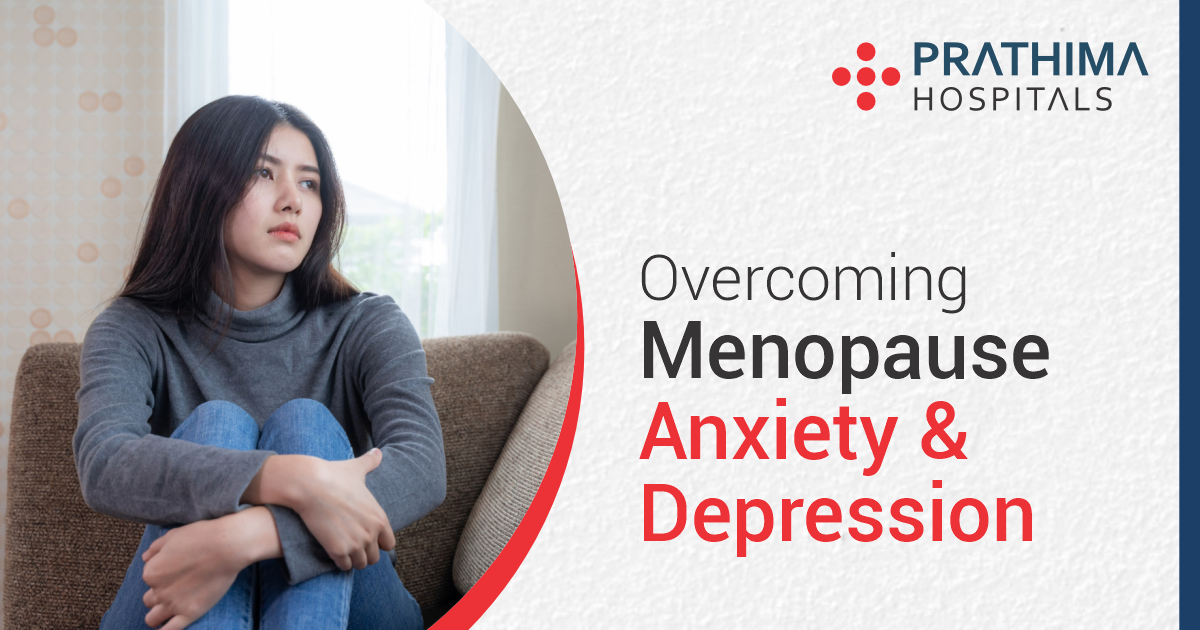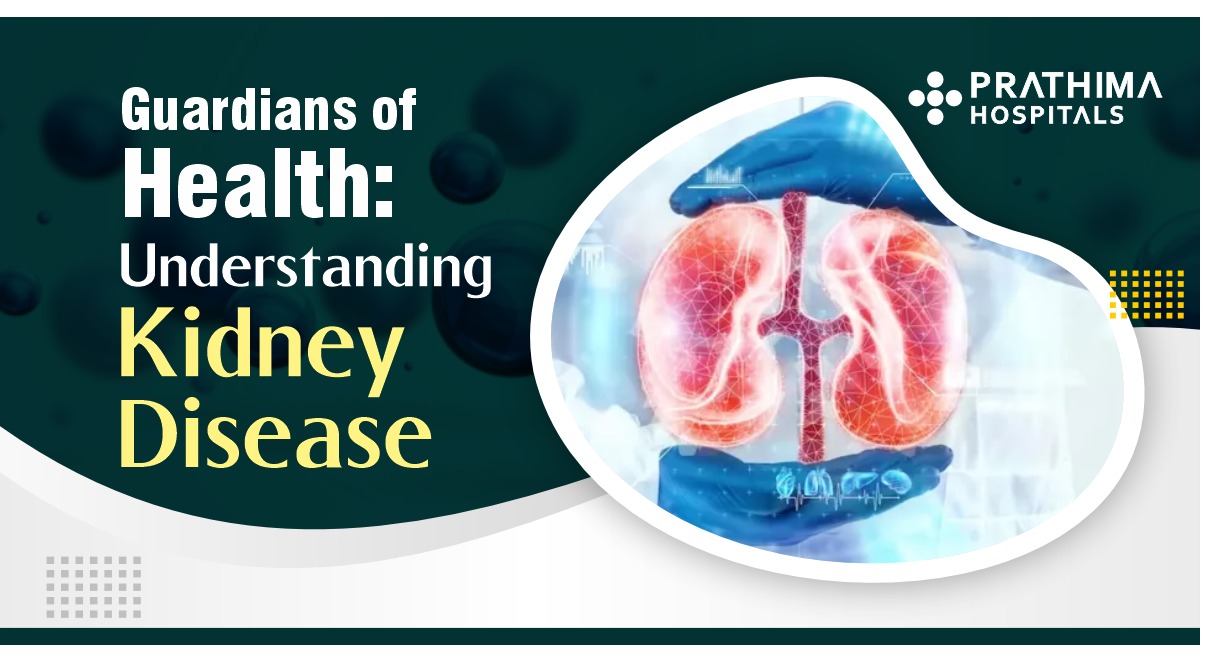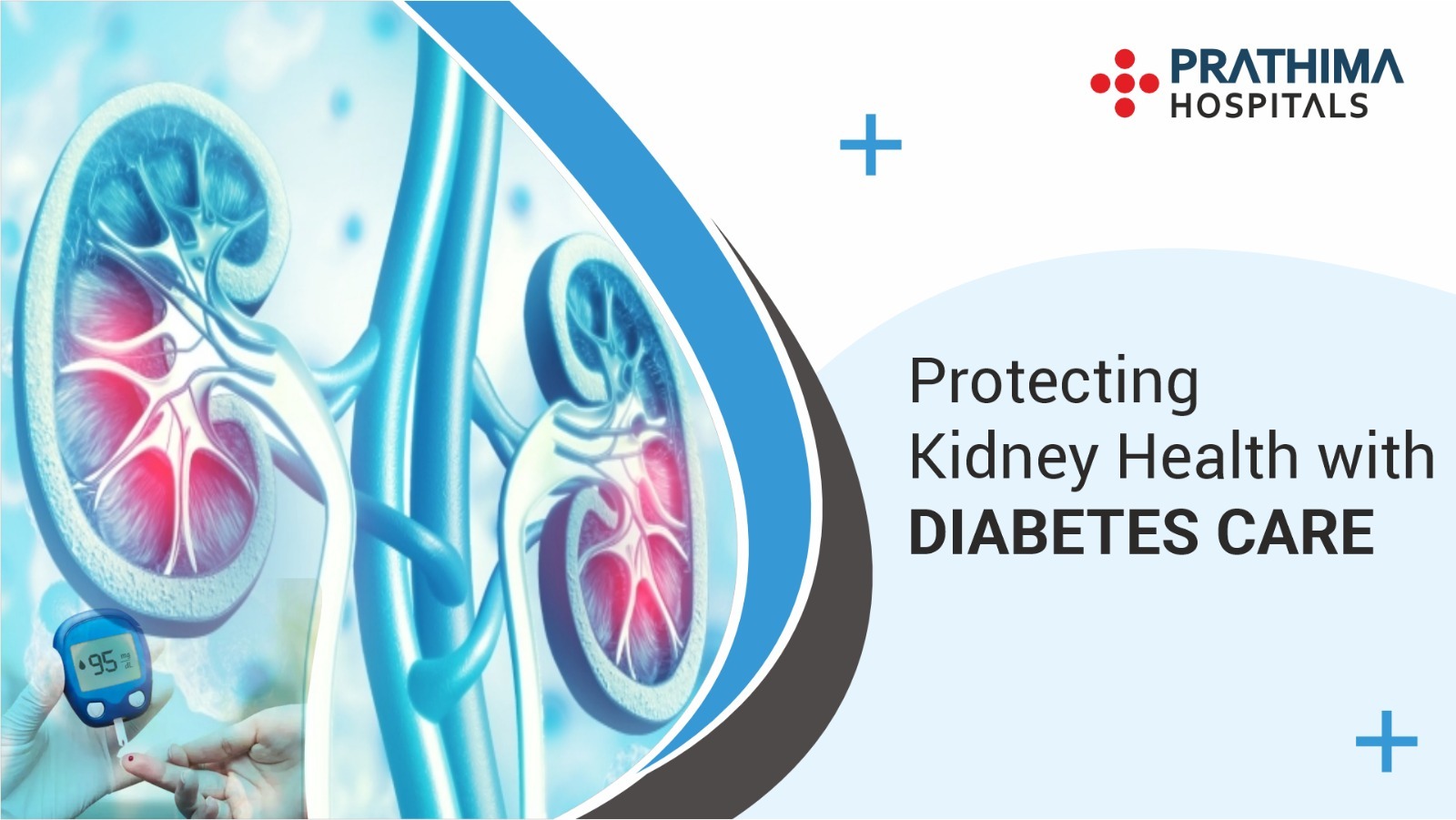Expert Tips to Cope with Menopause Anxiety and Depression

Menopause Mood Management
Introduction:
Menopause is a natural life phase, signifying the conclusion of a woman’s reproductive years. While this transition can bring relief from monthly menstruation and birth control concerns, it is also accompanied by a range of physical and emotional changes. According to the Best Gynecologist in Hyderabad, one of the most significant challenges women may face during menopause is anxiety and depression.
Menopause anxiety and depression are not uncommon, and they can significantly impact a woman’s overall well-being and quality of life. The hormonal fluctuations during this phase can contribute to mood swings, irritability, and feelings of sadness. However, with the right knowledge and strategies, women can effectively manage these symptoms and find balance during this new chapter of life.
Understanding Menopause Anxiety and Depression:
Menopause is a natural biological process that commonly happens in women aged 45 to 55. It marks the end of a woman’s reproductive years and is characterized by a decline in the production of female hormones, particularly estrogen and progesterone. As the body adjusts to these hormonal changes, it can lead to a variety of physical and emotional symptoms. Among these, anxiety and depression are common and can significantly impact a woman’s emotional well-being and quality of life.
Hormonal Changes:
Menopause is characterized by reduced production of estrogen and progesterone by the ovaries, which results in fluctuating hormone levels. Estrogen, in particular, plays a significant role in regulating mood and emotions. As its levels decline, serotonin, a neurotransmitter responsible for mood regulation, can also be affected. Reduced estrogen levels have been associated with an increased risk of depression and anxiety.
Emotional Responses:
For numerous women, menopause signifies a significant life transition. It can be a time of reflection, facing mortality, and adjusting to changes in one’s identity and roles. The realization of ageing and the end of fertility may lead to feelings of loss, sadness, and even grief. Additionally, societal expectations and stereotypes about ageing and menopause can add to feelings of anxiety and depression, making it challenging for women to discuss their emotions openly.
Physical Symptoms:
Menopause is also associated with various physical symptoms that can contribute to anxiety and depression. Common physical symptoms include hot flashes, night sweats, insomnia, fatigue, and joint pain. These symptoms can disrupt sleep patterns and daily activities, leading to heightened stress and emotional distress.
Perimenopause and Fluctuating Hormones:
Before menopause, women go through a phase called perimenopause, which can last several years. During this time, hormone levels fluctuate, leading to irregular menstrual cycles and a more pronounced experience of menopause symptoms. These hormonal fluctuations can exacerbate mood swings and emotional instability, contributing to anxiety and depression.
Psychological and Sociocultural Factors:
Aside from hormonal changes, psychological and sociocultural factors can also contribute to menopause-related anxiety and depression. Women experiencing multiple life stressors, unresolved emotional issues, or a history of mental health conditions may be more susceptible to emotional challenges during menopause. Sociocultural factors, such as negative attitudes toward menopause or a lack of support, can also impact a woman’s emotional response to this phase.
Managing Menopause Anxiety and Depression:
Expert Tips to Manage Menopause Anxiety and Depression
Seek Professional Support:
Seeking professional support during menopause is crucial for women experiencing anxiety and depression. A variety of healthcare professionals can offer guidance and assistance tailored to individual needs and concerns. Here are some details on seeking professional support during menopause:
Gynecologist or Menopause Specialist:
A gynaecologist is a medical doctor specializing in women’s health, including reproductive and hormonal issues. The Best Gynecologist in Kukatpally, can be a valuable resource during menopause, providing information about the physical changes associated with this stage of life and addressing any medical concerns related to menopause.
- Regular Check-ups: It is essential to schedule regular check-ups with a gynaecologist during perimenopause and menopause to monitor hormone levels, bone density, and overall health.
- Hormone Therapy: Gynecologists can discuss the option of hormone therapy with women experiencing severe menopausal symptoms. Hormone therapy involves the use of estrogen or a combination of estrogen and progesterone to alleviate symptoms like hot flashes, vaginal dryness, and mood swings. However, hormone therapy is not suitable for everyone and should be considered on a case-by-case basis, weighing its potential benefits and risks.
- Individualized Advice: Gynecologists can offer personalized advice based on a woman’s medical history, lifestyle, and preferences, helping her make informed decisions about managing menopause symptoms.
Mental Health Professional:
Mental health professionals, such as psychologists, psychiatrists, and counsellors, specialize in diagnosing and treating mental health conditions, including anxiety and depression. They can be instrumental in helping women navigate through the emotional challenges of menopause.
- Psychological Assessment: A mental health professional will conduct a comprehensive assessment to understand a woman’s emotional state, identify any underlying mental health conditions, and evaluate the impact of menopause on her well-being.
- Cognitive-Behavioral Therapy (CBT): CBT is a widely used evidence-based therapy that can be effective in managing anxiety and depression during menopause. This therapy helps individuals recognize and modify negative thought patterns and develop healthy coping strategies.
- Supportive Counseling: Supportive counselling provides a safe space for women to express their feelings and emotions openly. A counsellor can offer validation, empathy, and guidance as women navigate the changes and challenges of menopause.
Menopause Support Groups:
Joining menopause support groups can be immensely beneficial for women during this phase. Support groups create a sense of community and allow women to connect with others experiencing similar challenges.
- Shared Experiences: Support groups provide an opportunity to share experiences, feelings, and coping strategies, which can be comforting and reassuring for women going through menopause.
- Emotional Support: Group members can offer emotional support, validation, and understanding, reducing feelings of isolation and loneliness.
- Coping Strategies: Support groups often discuss various coping strategies and techniques that have worked for different individuals, helping women explore new ways to manage their symptoms.
Integrative Medicine Practitioners:
Integrative medicine practitioners, such as naturopathic doctors or holistic health practitioners, may offer a complementary approach to managing menopause symptoms.
- Natural Remedies: Integrative medicine practitioners may recommend herbal supplements or other natural remedies to alleviate menopause-related symptoms. However, it is essential to consult with a qualified healthcare professional before trying any herbal or alternative treatments, as they can interact with other medications or have unintended effects.
- Lifestyle Recommendations: Integrative medicine practitioners often emphasize lifestyle changes, such as dietary modifications, exercise routines, and stress-reduction techniques, to support overall well-being during menopause.
Practice Stress-Reduction Techniques:
- Meditation: Regular meditation practices can help calm the mind, reduce stress, and improve overall mental well-being. Mindfulness meditation, in particular, is effective in managing menopause symptoms.
- Yoga: Engaging in gentle yoga exercises can aid in relaxation, enhance flexibility, and promote a positive outlook on life. It can also help alleviate physical symptoms like hot flashes and joint pain.
- Breathing Exercises: Deep breathing exercises can be practised anytime and anywhere to induce a state of calmness. Focused breathing can help manage anxiety and reduce the intensity of hot flashes.
Regular Exercise:
- Aerobic Activities: Engaging in regular aerobic exercises, such as brisk walking, jogging, or cycling, can help release endorphins (natural mood elevators) and reduce anxiety and depression.
- Strength Training: Incorporating strength training exercises can help improve bone health and muscle mass, contributing to an overall sense of well-being.
Maintain a Balanced Diet:
- Foods Rich in Nutrients: Consume a well-balanced diet with ample fruits, vegetables, whole grains, and lean proteins. Omega-3 fatty acids, found in fish and nuts, are beneficial for brain health and mood regulation.
- Limit Caffeine and Alcohol: Reduce the intake of caffeine and alcohol, as they can exacerbate anxiety and disrupt sleep patterns.
Prioritize Sleep:
- Establish a Routine: Create a calming bedtime routine to signal your body that it’s time to wind down and prepare for sleep.
- Sleep Environment: Ensure your bedroom is comfortable and conducive to sleep. Keep it cool, dark, and quiet.
- Limit Screen Time: Minimize exposure to electronic devices before bedtime, as the blue light can interfere with melatonin production and disrupt sleep.
Stay Connected:
- Reach Out to Loved Ones: Social support is crucial during menopause. Talk to your family and friends about what you’re going through, and don’t hesitate to seek comfort and understanding.
- Spend Time with Friends: Engage in social activities that bring joy and a sense of fulfilment.
Manage Triggers:
- Identify Triggers: Recognize situations, activities, or people that exacerbate anxiety or depression. Work on avoiding or managing them to reduce emotional distress.
- Time Management: Prioritize tasks and set realistic goals to prevent feeling overwhelmed.
Conclusion:
Menopause is a natural phase of life, and anxiety and depression during this time are not unusual. The hormonal changes, emotional adjustments, and physical symptoms can create a challenging landscape for women going through menopause. However, with expert tips and strategies, women can effectively manage these symptoms and embrace this new phase with confidence and positivity.
Remember that seeking professional support at the Best Gynecology Hospital in Hyderabad, practising stress-reduction techniques, engaging in regular exercise, maintaining a balanced diet, prioritizing sleep, staying connected, and managing triggers are essential components of a holistic approach to managing menopause anxiety and depression. Each woman’s experience is unique, so it’s essential to find the strategies that work best for you to navigate through this transformative stage of life with grace and resilience.
.
.
.
.
.
For more details:
📞:: 733 733 6600 | 040 4345 4345
🌐:: https://prathimahospitals.com/book-appointment/





